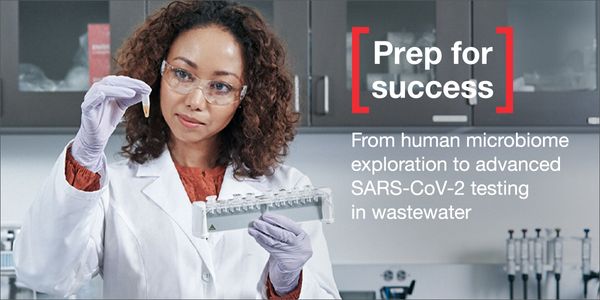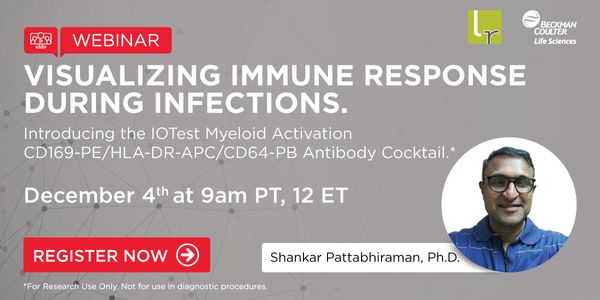Human development
Human development describes the stages of human life. Human development consists of 5 stages. Infancy (up to one year), toddler (age 1 - 5), childhood (age 3 - 11), adolescence (age 12 - 18), and adulthood. The study of human development aims to understand how people grow, develop, and change throughout their life.
-
FEB 10, 2021 | 8:00 AMDate: February 10, 2021 Time: 8:00am (PST), 11:00am (EST) Uncovering the interactions between the immune system and cancer cells or pathogens is key for understanding and controlling both ca...FEB 10, 2021 | 12:00 AMTraditional drug discovery often begins with simple biochemical and transformed cellular models, advances to more complex animal models in late discovery phases, and often does not ‘se...Speaker: Cassiano Carromeu, PhDPresented at: Laboratory Animal Sciences Virtual Event Series 2021
FEB 10, 2021 | 12:00 AMThe International Consortium for Innovation and Quality in Pharmaceutical Development (IQ) Microphysiological Systems (MPS) Affiliate is a group of pharmaceutical industry scientists who see...Speaker: Szczepan Baran, VMD, MSPresented at: Laboratory Animal Sciences Virtual Event Series 2021
FEB 10, 2021 | 12:00 AMRemarkable progress in life science and technology in the past century has advanced our fundamental understanding of the human body beyond our imagination. The ever-increasing knowledge of h...FEB 10, 2021 | 12:00 AMSince the first introduction of the 3R concept in 1959 by Russell and Burch, there has been an increasing interest in finding alternatives to animal testing for ethical and economic reasons....FEB 10, 2021 | 12:00 AMKey to the development of the HUB Organoid Technology was the discovery of LGR5+ intestinal adult stem cells by the Clevers’ lab. With the identification of these stem cells, we were a...FEB 10, 2021 | 12:00 AMLearning Objectives: 1. Define an effective in vitro tissue model 2. Identify the features of a microvasculature 3. Explain the approaches for building in vitro tissue models...Speaker: James (Jay) Hoying, PhDPresented at: Laboratory Animal Sciences Virtual Event Series 2021
FEB 10, 2021 | 12:00 AMOrganoids are emerging tools to study homeostatic function and disease of human organs. This technology has now for the first time been extended to reptiles by establishing cultures of the s...FEB 10, 2021 | 12:00 AMHandling laboratory animals can stimulate stress and anxiety that negatively impacts animal welfare and introduces a substantial confounding factor in many areas of scientific research. Howe...Speaker: Jane L. Hurst, PhD, OBEPresented at: Laboratory Animal Sciences Virtual Event Series 2021
FEB 10, 2021 | 12:00 AMPrimates have been essential in unlocking novel immune mechanisms that have driven development of groundbreaking new drugs in infectious disease and transplantation, amongst others related t...Speaker: Melanie L. Graham, MPH, PhDPresented at: Laboratory Animal Sciences Virtual Event Series 2021
FEB 09, 2021 | 8:00 AMDATE: February 09, 2021 TIME: 08:00am PST Flow cytometry immunophenotyping has become one of the mainstream applications for the diagnosis and classification of several hematologic neoplasms...FEB 03, 2021 | 12:30 PMIn vitro spheroid models are fast becoming the de facto standard for drug discovery applications, largely due to their human-like physiological and morphological characteristics, tissue-like...FEB 03, 2021 | 8:00 AMDate: February 3, 2021 Time: 8:00am (PST), 11:00am (EST) This introduction webinar will provide you with an overview of the general immuno-oncology (IO) research field...JAN 12, 2021 | 8:00 AMDATE: January 12, 2021 TIME: 8:00 am PST, 11:00 am EST, 5:00pm CET Transferring a biologic candidate from the research and development phase to commercial production usually requires increas...DEC 16, 2020 | 8:00 AMDate: December 16, 2020 Time: 8:00am (PST), 11:00am (EST) Molecular imaging of living specimens offers a means to draw upon the growing body of high-throughput molecular data to better under...DEC 15, 2020 | 10:00 AMDATE: December 15, 2020 TIME: 10:00am PST Scientists from Thermo Fisher Scientific will walk us through the world of microorganisms. They will discuss their most recent research on viruses,...Speaker: Sasha Vlassov, PhD , Jasti Madhu , Emily ZeringerSponsored By: Thermo Fisher ScientificDEC 09, 2020 | 9:00 AMDATE: December 09, 2020 TIME: 09:00am PST Hematopoietic stem cells (HSCs) ensure homeostasis of blood throughout life. In this webinar, we share insights into the smart and easy isolation, c...DEC 04, 2020 | 9:00 AMDate: December 4, 2020 Time: 9:00am PST, 12:00pm EST Activation of Myeloid cells and interferon release is an early response to infection. The 3-marker combination (CD169/CD64/HLA-DR) gives...DEC 03, 2020 | 4:30 PMThis drug development program is designed to create a family of broad-spectrum, pan-coronaviral drugs that respectively inhibit multiple key enzymes required for viral replication. By target...DEC 03, 2020 | 10:30 AMThe severe acute respiratory syndrome coronavirus 2 (SARS-CoV-2) emerged in December 2019 and has spread globally, causing a pandemic of respiratory illness designated coronavirus disease 20...Speaker: Arutha Kulasinghe, PhD , Miguel Muñoz-Ruiz, PhDDEC 03, 2020 | 7:30 AMLearning Objectives: 1. Define SARS-CoV-2 immunity, antibody testing, and discuss what is known about the meaning of these tests 2. Identify challenges in doing research during social distan...DEC 03, 2020 | 12:00 AMIn this talk, Dr. Adalja will discuss the coronavirus family in general highlighting its history. Emphasis will be placed on why this viral family has pandemic potential. Learning Objectives...DEC 03, 2020 | 12:00 AMLearning Objectives: 1. Learn what RNA and DNA vaccines are and why they are ideal vaccine strategies to respond rapidly to pandemics 2. Understand the key requirements of an effective vacci...DEC 03, 2020 | 12:00 AMAntibody tests are important tools to assess the efficacy of vaccine candidates and to derive suitable vaccination modalities. High specificity and sensitivity are of great importance for th...
FEB 10, 2021 | 8:00 AM
Date: February 10, 2021 Time: 8:00am (PST), 11:00am (EST) Uncovering the interactions between the immune system and cancer cells or pathogens is key for understanding and controlling both ca...
FEB 10, 2021 | 12:00 AM
Traditional drug discovery often begins with simple biochemical and transformed cellular models, advances to more complex animal models in late discovery phases, and often does not ‘se...
Speaker:
Cassiano Carromeu, PhD
Presented at: Laboratory Animal Sciences Virtual Event Series 2021
FEB 10, 2021 | 12:00 AM
The International Consortium for Innovation and Quality in Pharmaceutical Development (IQ) Microphysiological Systems (MPS) Affiliate is a group of pharmaceutical industry scientists who see...
Speaker:
Szczepan Baran, VMD, MS
Presented at: Laboratory Animal Sciences Virtual Event Series 2021
FEB 10, 2021 | 12:00 AM
Remarkable progress in life science and technology in the past century has advanced our fundamental understanding of the human body beyond our imagination. The ever-increasing knowledge of h...
FEB 10, 2021 | 12:00 AM
Since the first introduction of the 3R concept in 1959 by Russell and Burch, there has been an increasing interest in finding alternatives to animal testing for ethical and economic reasons....
FEB 10, 2021 | 12:00 AM
Key to the development of the HUB Organoid Technology was the discovery of LGR5+ intestinal adult stem cells by the Clevers’ lab. With the identification of these stem cells, we were a...
FEB 10, 2021 | 12:00 AM
Learning Objectives: 1. Define an effective in vitro tissue model 2. Identify the features of a microvasculature 3. Explain the approaches for building in vitro tissue models...
Speaker:
James (Jay) Hoying, PhD
Presented at: Laboratory Animal Sciences Virtual Event Series 2021
FEB 10, 2021 | 12:00 AM
Organoids are emerging tools to study homeostatic function and disease of human organs. This technology has now for the first time been extended to reptiles by establishing cultures of the s...
FEB 10, 2021 | 12:00 AM
Handling laboratory animals can stimulate stress and anxiety that negatively impacts animal welfare and introduces a substantial confounding factor in many areas of scientific research. Howe...
Speaker:
Jane L. Hurst, PhD, OBE
Presented at: Laboratory Animal Sciences Virtual Event Series 2021
FEB 10, 2021 | 12:00 AM
Primates have been essential in unlocking novel immune mechanisms that have driven development of groundbreaking new drugs in infectious disease and transplantation, amongst others related t...
Speaker:
Melanie L. Graham, MPH, PhD
Presented at: Laboratory Animal Sciences Virtual Event Series 2021
FEB 09, 2021 | 8:00 AM
DATE: February 09, 2021 TIME: 08:00am PST Flow cytometry immunophenotyping has become one of the mainstream applications for the diagnosis and classification of several hematologic neoplasms...
FEB 03, 2021 | 12:30 PM
In vitro spheroid models are fast becoming the de facto standard for drug discovery applications, largely due to their human-like physiological and morphological characteristics, tissue-like...
FEB 03, 2021 | 8:00 AM
Date: February 3, 2021 Time: 8:00am (PST), 11:00am (EST) This introduction webinar will provide you with an overview of the general immuno-oncology (IO) research field...
JAN 12, 2021 | 8:00 AM
DATE: January 12, 2021 TIME: 8:00 am PST, 11:00 am EST, 5:00pm CET Transferring a biologic candidate from the research and development phase to commercial production usually requires increas...
DEC 16, 2020 | 8:00 AM
Date: December 16, 2020 Time: 8:00am (PST), 11:00am (EST) Molecular imaging of living specimens offers a means to draw upon the growing body of high-throughput molecular data to better under...
DEC 15, 2020 | 10:00 AM
DATE: December 15, 2020 TIME: 10:00am PST Scientists from Thermo Fisher Scientific will walk us through the world of microorganisms. They will discuss their most recent research on viruses,...
Speaker:
Sasha Vlassov, PhD
, Jasti Madhu
, Emily Zeringer
Sponsored By: Thermo Fisher Scientific
DEC 09, 2020 | 9:00 AM
DATE: December 09, 2020 TIME: 09:00am PST Hematopoietic stem cells (HSCs) ensure homeostasis of blood throughout life. In this webinar, we share insights into the smart and easy isolation, c...
DEC 04, 2020 | 9:00 AM
Date: December 4, 2020 Time: 9:00am PST, 12:00pm EST Activation of Myeloid cells and interferon release is an early response to infection. The 3-marker combination (CD169/CD64/HLA-DR) gives...
DEC 03, 2020 | 4:30 PM
This drug development program is designed to create a family of broad-spectrum, pan-coronaviral drugs that respectively inhibit multiple key enzymes required for viral replication. By target...
DEC 03, 2020 | 10:30 AM
The severe acute respiratory syndrome coronavirus 2 (SARS-CoV-2) emerged in December 2019 and has spread globally, causing a pandemic of respiratory illness designated coronavirus disease 20...
Speaker:
Arutha Kulasinghe, PhD
, Miguel Muñoz-Ruiz, PhD
DEC 03, 2020 | 7:30 AM
Learning Objectives: 1. Define SARS-CoV-2 immunity, antibody testing, and discuss what is known about the meaning of these tests 2. Identify challenges in doing research during social distan...
DEC 03, 2020 | 12:00 AM
In this talk, Dr. Adalja will discuss the coronavirus family in general highlighting its history. Emphasis will be placed on why this viral family has pandemic potential. Learning Objectives...
DEC 03, 2020 | 12:00 AM
Learning Objectives: 1. Learn what RNA and DNA vaccines are and why they are ideal vaccine strategies to respond rapidly to pandemics 2. Understand the key requirements of an effective vacci...
DEC 03, 2020 | 12:00 AM
Antibody tests are important tools to assess the efficacy of vaccine candidates and to derive suitable vaccination modalities. High specificity and sensitivity are of great importance for th...
























